- Meet in Rwanda
- Gorilla Gram

Practical Information
- Book A Trip
- Partnerships

Proudly hosted by Rwanda
Rwanda welcomes the world to the first ever WTTC Global Summit in Africa.

Rwanda is proud to co-host the 23rd World Travel and Tourism Council (WTTC) Global Summit from 1-3 November 2023. The annual summit brings together industry leaders and government representatives to discuss and align efforts for the recovery of the travel and tourism sector.
The theme of this years Global Summit, Building Bridges to a Sustainable Future, is focused on moving towards a safer, more resilient, inclusive and sustainable future.
Coming to Africa for the first time
For the first time, the World Travel and Tourism Council Global Summit will take place in Africa. Known for its commitment to sustainable tourism and biodiversity conservation, Rwanda will highlight the power of sustainable tourism to protect biodiversity and build thriving communities.
Register to attend
If you have already received an invitation to attend the summit, click here . If you havent received an invitation but would like to attend, you can complete the application form here .
Explore Rwanda
Known as the Land of A Thousand Hills, Rwanda offers once-in-a-lifetime experiences.
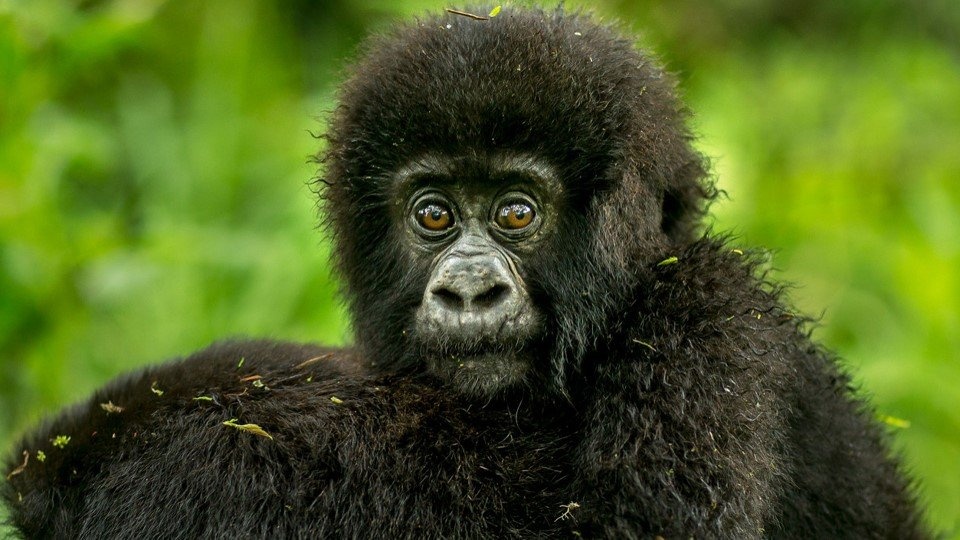
Gorilla Trekking
Rwanda is one of the few countries where you can find mountain gorillas. Thanks to the incredible conservation efforts, endangered mountain gorillas are now the only great ape species in the world growing in number. Rwanda offers unforgettable adventures that allow you to get up close with these majestic creatures in the Volcanoes National Park.
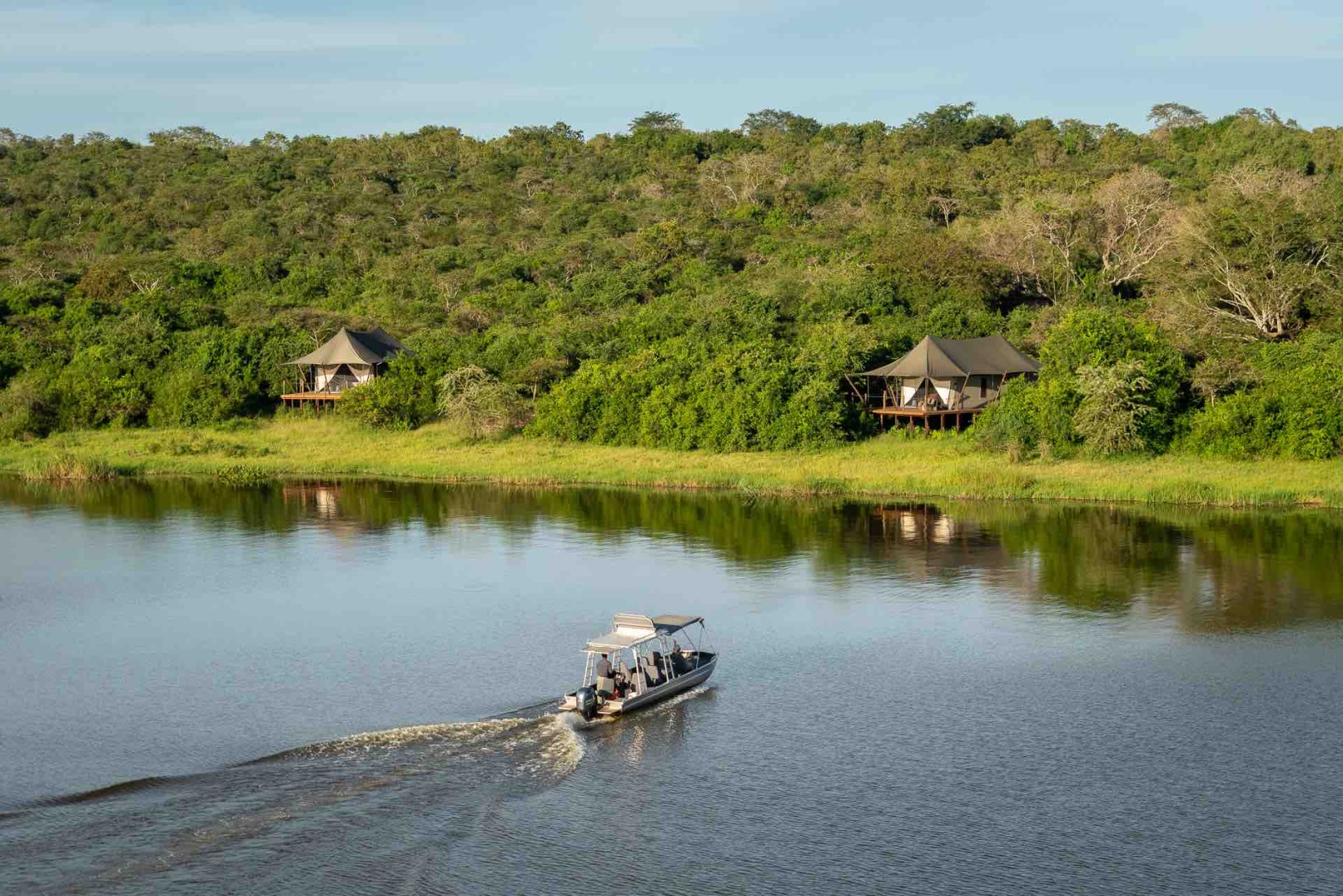
Akagera National Park
Akagera National Park is central Africa’s largest protected wetland and Rwanda’s refuge for savannah adapted species. In this park you will encounter the Big Five, and enjoy a hot air balloon safari and a boat safari among other unique experiences. Here you can encounter the Big Five, enjoy a hot air balloon ride or a sunset boat safari, among other unique experiences. Akagera offers captivating views of the savannah, serene lakes, and wetlands, making it an ideal destination for those who enjoy the outdoors and wildlife game drives.

Nyungwe National Park
Located in the southwestern Rwanda, Nyungwe National Park is one of Africas oldest rainforests and was recently inscribed on the UNESCO World Heritage list. Your journey will include an opportunity to traverse the canopy walkway, spot incredible biodiversity on beautiful trails, and enjoy breathtaking views of the lush rainforest canopy.
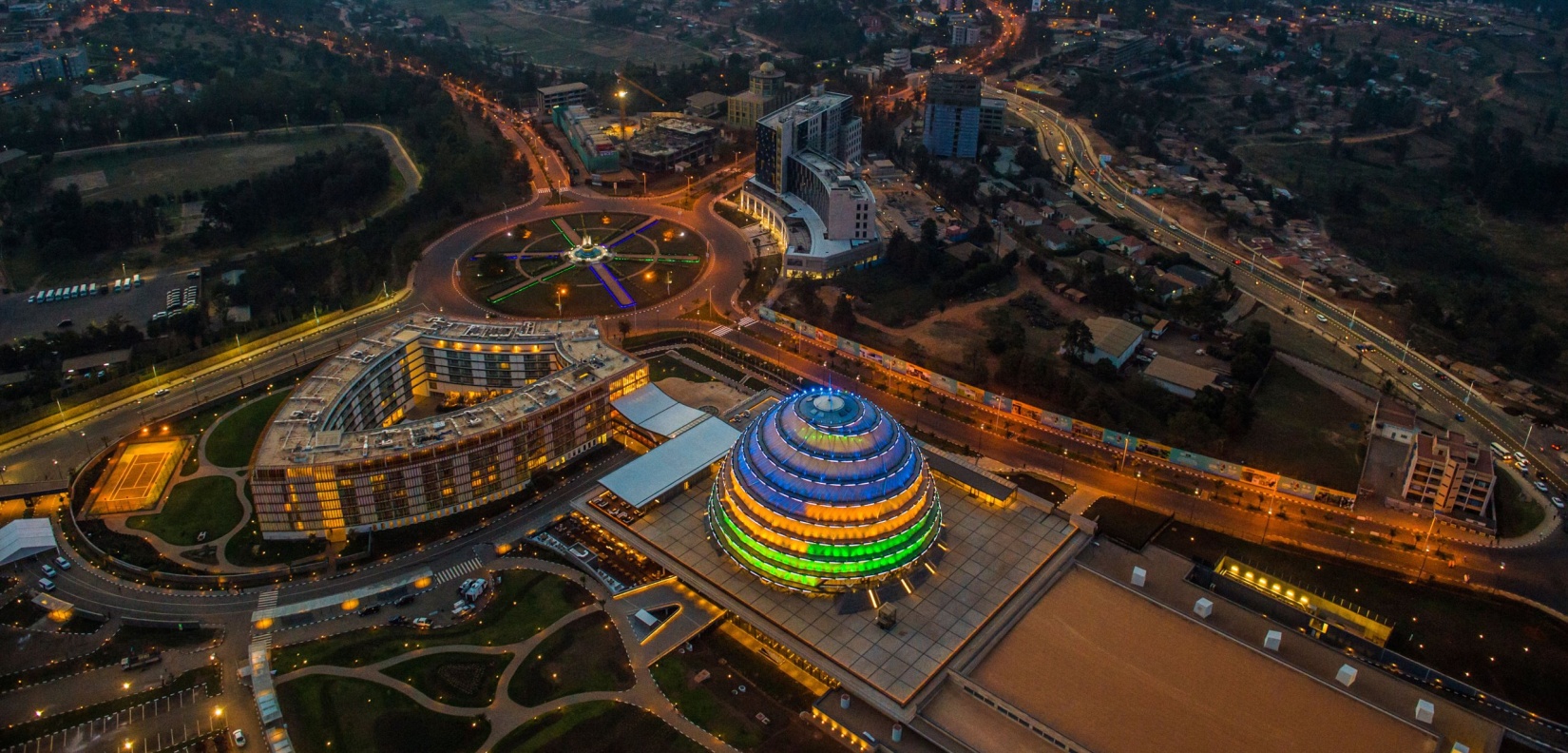
City of Kigali
The vibrant city of Kigali offers a unique mix of art, culture, and modernity. Dive into lively markets that offer a mix of tastes and crafts and stroll around ambient and welcoming neighbourhoods. You will enjoy the variety of culinary tastes offered by local eateries, an exciting nightlife and the friendliness of the citys residents.
Travel Lightly
- Responsible Tourism

Where to Stay
- Accommodation

Visit Rwanda
Book your trip.

- National Parks
- Culture & Heritage
- Sports & Adventure
- Itineraries


WTTC 23rd Global Summit: President Kagame Calls For Opening Up Of Skies, Removal Of Visa Restrictions

President Kagame called for the opening up of skies and removal of visa restrictions on the African continent.
The World Travel and Tourism Council (WTTC) 23rd Global Summit officially opened in Kigali, Rwanda, on Thursday, with President Paul Kagame of Rwanda, President Samia Suluhu Hassan of Tanzania, Vice-President Prosper Bazombanza of Burundi, calling for liberalized travel across the region and the continent.
In his keynote address, President Kagame called for the opening of African skies and removal of visa restrictions to allow Africans to travel freely across the continent, pointing out that Africa is the future of travel with its fast-growing middle class hungry to explore.
The two and a half day summit, the first WTTC summit to be held on the African continent, brings together over 1,500 delegates from across the continent and the globe to discuss the future of the travel and tourism industry, amidst a positive recovery trajectory.
President Kagame thanked WTTC for choosing Rwanda as the venue for this year’s summit, and for the excellent work they have done to support the travel and tourism sectors not just on the African continent but also globally.
The Head of State used the opportunity to highlight Rwanda’s openness to receive people from across the world, who can use the country as a connecting point to the rest of the continent and the world, just as Rwanda benefits from what other countries have to offer.
President Kagame said that as the high cost of travel on the continent and visa restrictions continue to make it difficult for Africans to travel as they wish, calling on African countries to address these impediments.

President Kagame said that African’s should be able to move without visa restrictions.
“Globally, the travel and tourism industry has recovered strongly but the high cost of travel to Africa and within Africa remains a barrier. Implementation of the single African Air transport Market is an important priority,” President Kagame said, adding that Rwanda has done her part, removing visa restrictions from citizens of all African countries as well as many other countries to make travel to the country easier.
Referring to the East African Community, President Kagame said the bloc is actually a single destination with attractions and experiments that reinforce one another, which they can leverage to boost revenues generated from the two tourism and travel industries.
The Head of State spoke about Rwanda’s tragic and destructive past, characterised by the 1994 Genocide against the Tutsi, but the country has since been able to pick up the pieces and today it is
“Almost [30] years ago, Rwanda experienced its darkest moment. This was a place that people fled from, a situation that the world looked away from in horror, but we vowed not to let the past define us. This meant building a nation where all Rwandans live in peace and dignity,” President Kagame said.
In doing what they did, President Kagame said the government imagined a Rwanda anyone in the world would want to travel to and that is why tourism is a key driver of economic growth and employment.

“This is a privilege and trust that we don’t take for granted. Conservation is a big part of our strategy to build a sustainable future,” he said, highlighting some of the gains registered so far, such as Nyungwe Forest National Park being designated as a world heritage site.
Among other things, he said Rwanda is investing in infrastructure to host global events like the WTTC summit as well as other facilities that can help the country tap into the continental and global market.
“Africa is the future of tourism, as the middle class continues to grow in the next decade to come. We must work together to continue developing Africa into a premier destination to travel,” pointed out.

President Samia Suluhu Hassan reiterated the potential of the travel and tourism industry to transform economies, calling for joint efforts to leverage these opportunities.

Burundi Vice President Bazombanza highlighted Burundi’s tourism potential that largely remains untapped, calling the world to come to the East African country.
Arnold Donald, Chair WTTC, said that investment in Travel and Tourism in Africa has risen at a much stronger rate than the global average since 2000 -something he said is a good sign for the industries, citing Rwanda as one of the countries that have showed how it is done.
“Between 2000 and 2019 investment increased by nearly 350%, that’s about three and a half times, and at a broadly consistent rate across the continent. Today, here in Rwanda, we send a resounding message to the world: the heart of Travel & Tourism beats strongly here in Africa,” Donald said.
He hailed President Kagame and the Government of Rwanda for their efforts to transform the tourism sector, refering to the sector which attracted US$173 million in revenues in 2022.
“And better still, Rwanda’s Travel & Tourism sector is forecast to rise to US$194 million, and in the next decade, it is expected to grow substantially even more — creating hundreds of thousands of new jobs,” he said
Donald said that country’s commitment to carbon-neutrality and conservation is an example to the rest of the world and it aligns perfectly with this year’s summit theme.

Arnold Donald said Rwanda has set the example of being intentional in turning around its travel and tourism sector.
One her part Julia Simpson, WTTC CEO and President 10 years ago, Rwanda didn’t even rank in the top 150 countries for ease of doing business but today it is day, it’s in the top 20 and one can register a new company in just six hours.
Simpson said that nearly 30 years ago no one would have thought of Rwanda’s progress today and the hope it gives many people, citing a story of a young man in the startup world she encountered who she said is an epitome of everything Rwanda stands for.
“This is a country, almost thirty years ago, was torn apart. Three decades on, it’s a nation transformed. Strong, united. Today Travel & Tourism is the single largest source of foreign earnings. By the end of 2023, it is forecast to be 8.2% of GDP, employing over 350,000 people,” Simpson said.
“That’s what we mean when we talk about the economic opportunity of travel. And it’s not just Rwanda. Africa – this remarkable continent – has transformed too. In just two decades, tourism has more than doubled. 84 million overnight international visitors added $186 billion dollars to Africa’s GDP in 2019 – 7 percent of the region’s entire economy,” Simpson said, adding that the forecast for the next ten years is even brighter.
She pointed out that Africa’s tourism sector is set to grow 6.5% every year – almost twice as fast as the wider economy, pointing to a new report which shows how Travel & Tourism in Africa could boost continent’s economy by US$168BN over the next 10 years
African sector expected to grow 6.5% per year over the next decade, according to the report, ‘Unlocking Opportunities for Travel & Tourism Growth in Africa’, which was unveiled in Kigali on Thursday.
This potential growth, according to the report, is dependent on three key policies to unlock annualised growth of 6.5%, reaching a contribution of more than US$ 350BN.
The report includes a policy package focused on improving Africa’s growth based on air infrastructure, visa facilitation and tourism marketing.
Travel & Tourism is a powerhouse sector in Africa, with a contribution of more than US$ 186BN to the region’s economy in 2019, welcoming 84 million international travellers.
The sector is also essential for employment, providing livelihoods to 25 million people, equating to 5.6% of all the jobs in the region.

Julia Simpson, CEO and President WTTC said the future of travel and tourism has never looked brighter.

RDB CEO Francis Gatare said Rwanda considers travel and tourism key sectors in the country’s socioeconomic transformation journey.
Arnold Donald, Chair WTTC hailed Rwanda’s tourism and conservation efforts.

Edmund Kagire
Breastfeeding in rwanda on decline, will israel mbonyi pull a mammoth crowd this christmas, related posts, bal4: sahara conference return leg is here, featured: admaius capital partners makes an investment in..., ‘we are starting to overdo it’ – thirty..., rainwater management a challenge – city of kigali..., bal4: rwanda’s apr overcome fans’ bullies to beat..., drc: dilemma for international community as the people..., judicial week launch: chief justice ntezilyayo on challenge..., rwanda’s peaceful heart: debunking misconceptions on safety and..., rwanda – uganda commit to resolve remaining border..., apr basketball club experience first defeat in bal.
COVID-19: Rwanda's preparedness and response
- World Travel & Tourism Council (WTTC) Global Summit
The 23rd World Travel & Tourism Council Global Summit will take place in Kigali, Rwanda, 1st - 3rd November 2023.
WTTC’s annual Global Summit is the most influential Travel & Tourism event on the calendar, and this year, industry leaders will once again gather with key government representatives to continue aligning efforts to support the sector’s recovery and move beyond to a safer, more resilient, inclusive, and sustainable future.
For registration and more information, visit the website below
Location

Volcanoes National Park Rwanda

Rwanda hosts 23rd World Travel & Tourism Council Global Summit
The World Travel & Tourism Council Global Summit 2023 was a 3-day event held in Kigali, Rwanda from 1st to 3rd November. The summit attracted many delegates and experts in travel and tourism, and people from over 45 countries to Rwanda to craft a new vision on how the sector should become sustainable. Rwanda became to first African country to host this global summit.
The summit also featured informational and educational seminars with keynote speakers shading light on a wide range of topics. As a host country, Rwanda is to benefit from WTTC several sustainable initiatives to ensure that Travel & Tourism benefits people/businesses, as well as nature & the environment.
For instance, the WTTC unveiled a groundbreaking digital system that tracks the climate footprint of the global travel and tourism sector during the 22nd global summit in Riyadh, Saudi Arabia in 2022. The primary objective of this carbon footprint data is to reduce emissions of greenhouse gasses from industrial activities and, in turn, mitigate the effects of climate change.
Rwanda expressed her interest to join the initiative and has been developing its own carbon emissions trading and readiness scheme. According to the Clean Development Mechanism of the United Nations Framework Convention on Climate Change (UNFCCC), Rwanda received about 2.25 million carbon credits which could unleash an estimated annual $82 billion in value, at $120 per tonne of carbon emissions, as well as create 167 million additional jobs.
Moving towards a sustainable future, Rwanda is also reducing the single use plastic products, one of the initiatives of the WTTC. Single Use Plastics were banned in 2008 as a bid to protect the environment. Additionally, in an effort to foster a sense of environmental responsibility among its people, the government implemented the Umuganda Community Initiative, which involves all Rwandans cleaning their villages on the last Saturday of each month. According to the Observer Research Foundation, Kigali capital city is the cleanest city in Africa.

When it comes to conservation in 2022, Rwanda opened Gishwati Mukura National Park which became the fourth national park in the country. The country also celebrated the 18th edition of Kwita Izina Gorilla Naming Ceremony, in which 21 gorilla babies were named in Volcanoes National Park. The Ellen DeGeneres Campus of the Dian Fossey Gorilla Fund and the ‘Gorilla Gram’ , a new innovative use of Instagram to protect and conserve gorillas and promote ecotourism, were inaugurated.
It is apparent that Rwanda has made strides in upholding the global sustainable goals. This year’s global summit was intentionally hosted in Rwanda to recognize the positive impact the travel and tourism industry has had in Africa for the past 3 decades. Despite the impacts of Covid-19, the sector has continued to recover from transforming the livelihoods to fostering local economic development to enhancing human health and biodiversity conservation.
According to RDB, Rwanda received 1,105,460 foreign visitors in total in 2022 of which almost 60% came from within Africa. This proves that Rwanda is becoming a magnet for travelers and an economic hub. Owing to its rich culture and biodiversity including mountain gorillas, Big 5 African mammals, and over 700 bird species. Overall, the sector generated $445 million in 2022 which represents 89.3% recovery from the pre-Covid-19 levels. Rwanda’s tourism sector is hugely boosted by gorilla trekking safaris which take place in Volcanoes national park in the northwest of the country. Rwanda is one of the only 3 countries in the world where the endangered mountain gorillas are found. The other two countries are Uganda and DR Congo.
From dark history to economic prosperity

For a country rising from the ashes to host such a high level summit and conference is an important milestone in the development of the country since her darkest days. Over 800,000 people lost their lives and 2 million fled the country to escape danger during the Rwandan 1994 genocide against Tutsi.
Make sure to visit the Kigali Genocide Memorial to learn about the historical Rwandan Civil War. The Rwandan economy after the war declined with the service and industry sectors basically becoming almost non-functioning. The country was one of the worst in the world to do business.
However, it shouldn’t surprise you that as the country marked the 29th anniversary of the genocide this year, she is ranked among the second among the top 10 African countries with ease of doing business. She is a nation transformed in many aspects including good governance under His Excellency President Paul Kagame that has promoted oneness and attracted investments over the past 3 decades.
According to the World Bank, Rwanda strives to become a Middle Income and High Income earner by 2035 and 2050 respectively. Some of the vigorous investments in the Meetings, Incentives, Conferences, and Exhibitions (MICE) tourism sector include the state-of-the-art infrastructure such as Kigali Convention Center which accommodates over 5,600 people along with conference arena and auditorium and internationally recognized hotel brands such as Marriott, Radisson Blu and Park Inn by Radisson. Kigali Central Business District now has a capacity of 10,000 guest rooms which has positioned her to host high level summits like this Global Summit among others such as World Economic Forum. And there are plans to double that capacity by 2025 with some hotels implementing technology to recycle water.
Rwanda also has an efficient information and technology system to educate citizens and improve access to basic services. She has also integrated wildlife conservation and environment protection into the national development plan. Through the Environmental Protection Agenda, Rwanda intends to become a climate resilient and carbon-neutral economy by 2050. All these plans align with the WTTC global theme “Building Bridges to a Sustainable Future.”
Related Posts

Another baby gorilla born in Bwindi impenetrable national park
May 9, 2024

Uganda Wildlife Authority raises conservation tariffs in Uganda
February 7, 2024


Africa’s big five game: All you need to know
December 6, 2023
- Mobile Site

Rwanda Will Host 2023 World Travel and Tourism Council Global Summit
Publish Time:2022-12-05 16:43:45 Source: Travel Pulse
【Introduction】:The World Travel and Tourism Council (WTTC) announced that its next World Travel and Tourism Council Global Summit will take place in Rwanda.
The World Travel and Tourism Council (WTTC) announced that its next World Travel and Tourism Council Global Summit will take place in Rwanda.
The annual Global Summit is one of the most influential Travel and Tourism events every year and brings together thousands of industry leaders, experts and government representatives with the goal of aligning efforts to support the travel and tourism sector's growth and to create a safer, more resilient, inclusive and sustainable future within the industry.
"On behalf of the Government of Rwanda, it is our great pleasure and honor to have been selected to host the 2023 WTTC Global Summit in Kigali next year," said Clare Akamanzi, Chief Executive Officer of the Rwanda Development Board (RDB). "We are a safe and progressive country and are open for business and mean business. We are an African destination for sustainable tourism that has both local communities and the traveler at the heart of our strategy. We are excited to welcome you to the World Travel and Tourism Council Global summit in Kigali in 2023. We look forward to continuing the impactful work of WTTC when we meet in Rwanda."
The announcement was made at the close of this year's summit which took place in Riyadh, Saudi Arabia, from November 28-30, 2022, at which time Arnold Donald, Chair of the World Travel & Tourism Council commented on the choice.
"It's only fitting that our host for the WTTC 2023 Global Summit will be a country that has made great advancements in sustainable tourism and is now a true pioneer in the climate agenda," said Donald. "I hope to see everyone there."
- World's Best Rally Crews to Attend Croatia Rally
- Top-class Exhibitions in Berlin in 2023
- Seychelles Holds First-ever Destination Workshops ...
- Fascinating River Tours: All in Hamburg!
- National Geographic Lists Longmen Grottoes in Luoy...
- Vienna: Mozart, Strauss and DJ Sounds
- Tourists to Macao During Labor Day Holiday Exceed ...
- Trip.com Aims to Enhance Its Customer Experience T...
- Los Angeles Tourism Boss Hails UK Office and Eyes ...
- Quito Airport Seals a Strategic Alliance with the ...
- Dubai Maintains Tourism Growth Momentum
- Luxurious Four Seasons Hotel Osaka Opens Reservati...
- Milan Bergamo Airport Expands Reach with New Fligh...
- Carnival Corporation Completes Fleetwide Implement...
- Innovation Through Integration and Ecological Prio...
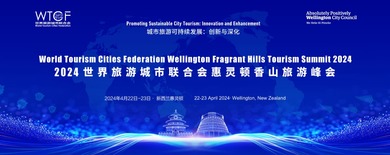
Strategic Partner

Beijing Municipality | Florence | Victoria | Torino | Sevilla | Chinese Friendly International | Innova Tax Free Group | World Travel & Tourism Council | World Tourism Organization | Pacific Asia Travel Association |
Beijing tourism development commission | un | wen wei po | via hansa | tui ag | the beijing news | taikang life insurance co. | skyscanner | sina.com |, shanghai spring international travel service | mastercard | kuoni | kempinski hotels | jtb | okura nikko hotel management co., ltd. | icbc | hong kong airlines | hanatour |, four seasons hotels and resorts | dfs | trip.com | costa crociere s.p.a. | club med | chinese national geography | china unionpay | china travel service | china southern airlines | china news service |, china international travel services | china daily | cyts | cctv | chengdu shuangliu international airport | carnival corporation & plc |, capital airports holding company | caissa | btg international travel & tours | beijing utour | beijing tourism group | beijing gongmei group | beijing capital international airport |, american tours international | american express | america asia travel center inc. | air china | abercrombie & kent | zurich | zhangjiajie | zagreb | yangzhou | xiamen | xi’an | wuhan | wellington | washington | wales | vienna |, veliko tarnovo | vancouver | valletta | toronto | tianjin | thessaloniki | tel aviv-yafo | taiyuan | sofia | athens | shanghai | seoul | sapp oro | sanya |, san francisco | rome | riga | rabat | qingdao | prague | pomorie | plovdiv | pen ang | pa ris-île de france | ottawa | nur-sultan | nicosia | nice | nanjing | mudanjiang | moscow | minsk | milan | marigot | macao | luoyang | los angeles | london | lisbon | kunming | kathmandu | jiaozuo | jakarta | houston | hong kong | helsinki | harbin | hangzhou | hamburg | gwangju | guangzhou | geneve | fez | edinburgh | dublin | dubai | dalian | copenhagen | colombo | chongqing | chengdu | casablanca | cairo | busan | buenos aires | budapest | brussels | boston | berlin | beijing | barcelona | bangkok | bandung | amsterdam | altay | almaty.
- Organizations
- WTCF Promotion Video
- Member List
- Institutional Members
- Sub-committees
- Media Reports
- Legal disclaimer
- Institutional News
- World Conference on Tourism Cooperation and Development
- WTCF World Conference on Tourism Cooperation and Development 2023
- WTCF World Conference on Tourism Cooperation and Development 2022
- WTCF Beijing Fragrant Hills Tourism Summit & World Conference on Tourism Cooperation and Development 2021
- WTCF Academic Achievement
- WTCF Reports
- Fragrant Hills Tourism Summit
- WTCF Changsha Fragrant Hills Tourism Summit 2023
- WTCF Beijing Fragrant Hills Tourism Summit 2021
- WTCF Helsinki Fragrant Hills Tourism Summit 2019
- WTCF Qingdao Fragrant Hills Tourism Summit 2018
- WTCF Los Angeles Fragrant Hills Tourism Summit 2017
- WTCF Chongqing Fragrant Hills Tourism Summit 2016
- WTCF Rabat & Fez Fragrant Hills Tourism Summit 2015
- WTCF Beijing Fragrant Hills Tourism Summit 2014
- WTCF Beijing Fragrant Hills Tourism Summit 2013
- WTCF Beijing Fragrant Hills Tourism Summit 2012

E-Mail Login | Contact Us | Careers | Legal disclaimer
世界旅游城市联合会版权所有 备案号:京ICP备19050424号-1
Our legal counselors: lawyer Song Yunfeng & lawyer He Wen, from Dacheng Law Offices

- Press Releases
- Press Enquiries
- Travel Hub / Blog
- Brand Resources
- Newsletter Sign Up
- Global Summit
- Hosting a Summit
- Upcoming Events
- Previous Events
- Event Photography
- Event Enquiries
- Our Members
- Our Associates Community
- Membership Benefits
- Enquire About Membership
- Sponsors & Partners
- Insights & Publications
- WTTC Research Hub
- Economic Impact
- Knowledge Partners
- Data Enquiries
- Hotel Sustainability Basics
- Community Conscious Travel
- SafeTravels Stamp Application
- SafeTravels: Global Protocols & Stamp
- Security & Travel Facilitation
- Sustainable Growth
- Women Empowerment
- Destination Spotlight - SLO CAL
- Vision For Nature Positive Travel and Tourism
- Governments
- Consumer Travel Blog
- ONEin330Million Campaign
- Reunite Campaign
Building Bridges to a Sustainable Future: The 2023 WTTC Global Summit

London, UK: In a milestone event that promises to reshape the contours of the global Travel & Tourism sector, the World Travel & Tourism Council ( WTTC ) today unveils the bold theme and agenda for WTTC’s 23rd Global Summit taking place in Kigali, Rwanda: "Building Bridges to a Sustainable Future". This year’s eagerly awaited Global Summit, set to unfold from the 1 - 3 November 2023, takes place in Africa for the first time, recognising the phenomenal growth the Travel & Tourism sector across the continent has witnessed in recent years. Julia Simpson, WTTC President & CEO, said: "This Global Summit is a rallying cry for leaders, innovators, and change-makers from all corners of the globe to come together and craft a new vision for the sector. "It's an unparalleled opportunity to be at the forefront of shaping a sector that is not only resilient but is also committed to the principles of sustainability and inclusivity. “Rwanda is the perfect venue for our Global Summit, as the sector embarks on a significant new chapter. Africa has the world’s youngest population and by 2033, $1 in every $13 created in Africa, will come from Travel & Tourism and 1 in 17 jobs will be in the sector. This demonstrates the huge potential the continent’s sector has for new jobs and new economic growth for young people across Africa.” Co-hosted by the Rwanda Development Board (RDB), the annual event is the most influential on the Travel and Tourism calendar that brings together thousands of industry leaders and experts and key government representatives to continue aligning efforts to support the sector’s growth and move beyond to a safer, more resilient, inclusive, and sustainable future. With sessions on resilience and sustainable growth, the growing impact of AI and understanding new and emerging markets, the Global Summit is set to cover the key challenges and opportunities facing the sector. Francis Gatare, CEO of the Rwanda Development Board, said: “We are proud to host the first ever WTTC Global Summit in Africa. While this important gathering will take place in Rwanda, it is for the whole continent. Africa has some of the most spectacular tourism properties and experiences in the world, and the sector plays a significant role in the continent’s continued economic development by creating millions of jobs. “This year’s WTTC Global Summit will provide a great platform to build bridges across the tourism and travel ecosystem, and co-design a sustainable future for the sector to achieve its full potential.” African Travel & Tourism Sector’s Potential The latest Economic Impact Research from the global tourism body reveals a staggering ten year forecast for Africa’s Travel & Tourism sector. In 2033, WTTC predicts that the Travel & Tourism sector will contribute more than $300BN to Africa’s economy and jobs in the sector will grow significantly, reaching more than 36MN in total. In Rwanda, WTTC is forecasting that by 2033 the Travel & Tourism sector will contribute more than $2.1BN to the national economy and will support almost 568,000 jobs. This is testament to Rwanda’s commitment to sustainable tourism, diversifying the experiences it offers, and promoting awareness of its rich biodiversity, culture and heritage, and art. Rwanda aims to double its tourism revenues from $445MN earned last year, to more than $800MN, in its ongoing seven-year National Strategy for Transformation and become one of the world’s leading luxury ecotourism destinations. The 2023 WTTC Global Summit seeks to be the catalyst for this change, offering a platform where vibrant ideas meet opportunity, and where the future of Travel & Tourism will be redrawn and redefined. For more details about the summit and how to participate, please visit the wttc.org . To discover more about Rwanda, go to visitrwanda.com . Download Press Release
.jpg)
WTTC Announces Major Speakers for Its 23rd Global Summit in Rwanda
.jpg)
WTTC Opens Its Global Summit in Kigali With a Strong Message of Recovery for Travel & Tourism


Special report: The power of the GCC as a source market for global tourism
The size and monetary value of the outbound GCC tourism market were never in question – but what are its challenges, opportunities and key growth drivers in the foreseeable future?
That the GCC market comprising Saudi Arabia, the UAE, Bahrain, Qatar, Kuwait and Oman, can prove to be an incredibly lucrative source market for global tourism is beyond doubt.
According to figures shared by the United Nations World Travel Organisation (UNWTO), international tourism expenditure from the GCC climbed from $40bn in 2010 to $60bn in 2017, with per capita expenditure of individuals from the GCC 6.5 times higher than other regions worldwide. Tourism boards across the world are only too aware of the fact.
“All over the world, [visitors from the GCC] are known as travellers with high solvency: their average spending on foreign trips is $1,700-$3,000,” says Anastasia Popova, head of International Division, Moscow City Tourism Committee.
While outbound tourism from the GCC means tens of billions spent in the destination countries, it also presents an opportunity for entities within the originating country. These could imply revenue streams for tour operators, airlines and travel insurance providers, among others, which stand to gain when the country’s residents book their foreign trip. According to data shared by Research and Markets, the Saudi revenue from its outbound travel and tourism market is projected to grow at a CAGR of 18.21 per cent from 2021-2028, reaching $27bn by 2028.
There are positive figures for almost all the other GCC markets. The UAE, which has the Arab world’s second-largest economy – and which has an approximately 90 per cent expat population – is expected to gather a revenue of $30.5bn by 2028 by way of outbound travel, Qatar will raise $13bn by then, and Kuwait will notch up $17bn in revenue from this avenue by 2028 (up from approximately $12bn in 2019.)
A pandemic-proof region The pandemic has undoubtedly pushed global tourism off a cliff. The UNWTO said that in 2020 international arrivals plummeted by more than 70 per cent, to levels not seen in over three decades. It estimated that the decline resulted in a loss of about 1 billion arrivals and $1.1 trillion by way of international tourism receipts.

At the time, UNWTO projected a rebound in international tourism over the second half of 2021, though cautioned that a return to 2019 levels in terms of international arrivals could take between 2½-4 years. However, preliminary data released earlier this year by UNWTO showed that while there was a 4 per cent year-on-year increase in international tourists’ arrivals in 2021, overall, these figures were still 72 per cent below pre-pandemic levels of 2019, highlighting the need for a more sustained and uniform recovery.
There are tourism destinations that bucked the trend last year – especially when it comes to attracting visitors from the GCC. Switzerland is a prime example. According to figures shared by Switzerland Tourism as well as from the Swiss Department of Statistics, from July-November 2021, there was a 2,107 per cent growth in the number of arrivals from the UAE compared to the same period in 2020 – it isn’t unusual for tourism boards to report such large differences over 2020 when most of the world was under lockdown for several months and stringent travel restrictions remained in place.
However, Switzerland Tourism’s highlight is that the July-November 2021 arrivals of 201,670 people from the UAE was 19.5 per cent higher than the 168,701 individuals that travelled from the UAE over the same period in 2019 – which means that as far as visits from the UAE are concerned. Switzerland is beating its pre-pandemic figures. From the GCC alone, Swiss Tourism received 352,956 visitors, who in turn generated 15.7 million overnights in the Alpine country from July-November last year. Pre-pandemic figures shared by Switzerland suggested that Saudi and the UAE account for around 35 per cent of its arrivals from the GCC, while Kuwait and Qatar recorded 13 per cent, and Bahrain and Oman followed at between 2-3 per cent.
Another region that is bucking the trend is the UK.
“Flight bookings data from ForwardKeys has shown signs of recovery from the Middle East when it comes to arrivals into the UK in recent months. The most favourable week so far for the Middle East was in late November, when arrivals reached 78 per cent of pre-Covid levels, outperforming all other global regions,” says Jennifer Huntley, head of partnerships, APMEA region for VisitBritain.
“In our most recent year of full data, 2019, 1.2 million visitors came to the UK from the GCC, and those visitors spent GBP2.6bn during their stays. GCC visitors stayed on average 12 nights, and spent GBP2,151 per visit. On average, from 2017-2019, 45 per cent of visits from the GCC originated from the UAE, 19 per cent from Saudi Arabia, 16 per cent from Kuwait, 13 per cent from Qatar, 4 per cent from Oman, and 3 per cent from Bahrain,” explains Huntley.
Huntley’s assessment of the lion’s share of visits from the region coming from the UAE, is supported by data released by the World Travel & Tourism Council in 2019 which found that while Saudi Arabia was the leading international market for outbound departures from the UAE with a share of 30 per cent, it was followed next by the UK at 17 per cent. The collective tourism potential of the GCC is further underscored by other destinations including Moscow. “The growing interest in Moscow is confirmed by statistics such as in the first nine months of 2021, there were 107,000 visitors from the Middle East, including almost 19,000 visitors from the UAE, 9,840 visitors from Qatar, and 3,815 visitors from Saudi Arabia,” observes Moscow tourism committee’s Popova.

A burgeoning GCC source market is true for the Far East as well, is also reflected in statistics by the Japan National Tourism Organization (JNTO). “In 2019, Japan saw a record high number of visitors from the GCC countries with 28,222 visitors making the journey, a 28.4 per cent increase on the previous year and the figure doubling in the past five years,” says Tomoko Kikuchi, executive director of JNTO’s Dubai office. Apart from the often-visited European, Asian and American haunts for GCC travellers, there are new markets that are only just opening to them – namely Israel.
“Following the signing of the Abraham Accords in 2020, the Israeli Ministry of Tourism held the first virtual joint tourism forum of the Emirates and Israel in December 2020. One of the main purposes of the forum was to create connections between Israel and UAE’s tourism industries and to initiate collaboration between the two markets in the tourism field,” says Ksenia Kobiakov, director of New Markets Development Department, at the Israel Ministry of Tourism.
“The UAE is a brand-new market for our ministry, specifically for our New Markets Development Department. We see great potential in incoming tourism from that destination. Therefore, we have put in action – and are already actively implementing – a detailed plan to promote tourism from UAE and Bahrain,” adds Kobiakov.
Local connections Realising the need to tailor their messaging for the region, global tourism boards are going the distance. JNTO, for example, opened its first Middle East office in Dubai last November.
By 2030, Japan intends to attract 60 million visitors with a projected annual consumption of JPY 15 trillion – and to get there, it’s going to need to make a big splash in the Middle East.
“According to a survey conducted by the JNTO in six GCC countries from May to June 2021, approximately 30 per cent of respondents answered that they would like to go to Japan in the future. Conversely, almost 40 per cent of the respondents answered: ‘I don’t know much about Japan’, presenting an opportunity for the JNTO Dubai office to broaden awareness and increase the number of visitors from the GCC,” says JNTO’s Dubai-based Kikuchi on the reason why it decided to open a representative office in Dubai in the midst of a pandemic.
Also last year, the UNWTO opened its first Middle East office in Riyadh in order to coordinate its initiatives and policies across 13 member states within the region.At times, attempts are being made at direct exchanges with local tourism boards from the region to learn best practices as well as to facilitate an exchange of knowledge.
“I am in touch with Dubai Tourism to develop collaborations,” says Fleur Hassan-Nahoum, deputy mayor of Jerusalem and co-founder of the UAE-Israel Business Council. “Our tourism ministries are in contact and working on [ways] to bring value to each other. We are getting requests about trips to Israel from a cross-section of the public in the Gulf.”
Expo 2020 Dubai particularly has been a focal point in the efforts of countries to drive tourism from the region to their destinations. As Kobiakov from Israel’s ministry of tourism points out, Israel had its pavilion at Expo Dubai 2020 opened by Israel Tourism Minister Yoel Razvozov.
VisitBritain, VisitScotland and Tourism Ireland meanwhile turned to the Expo to launch 10 new itineraries across the UK at the mega event. Some studies have also correlated a direct measurement of the impact that the Expo will have on driving out-bound tourism.
“Middle East tourism accounts for 1.3 per cent of the arrivals to Italy. It’s estimated that a 5 per cent increase of tourist flows to Italy following Expo Dubai would generate an economic value of EUR25.5m a year, accord-ing to the School of Management of Milan’s Politecnico,” says Paolo Glisenti, commissioner-general of Italy at Expo 2020 Dubai.The Expo has allowed international tourism boards operating in the UAE one more platform other than the traditional annual Arabian Travel Market held in Dubai every year.
“The Moscow City Tourism Committee will continue to forge links with travel influencers, major tour operators and MICE agencies in the region taking part in Arabian Travel Market and events dedicated to the business travel: Meetings Arabia and Luxury Travel Congress (MALT) and Qatar Business and Luxury Travel Congress (QBLT),” explains Popova.
Foreign tourism boards, as part of their local outreach initiatives, are also working closely with influencers from the region. Switzerland’s tourism board, for example, collaborated with Raha Moharrak, the youngest Arab and first Saudi woman to climb Mount Everest, as well as Sara Murad and Haya Yasmeen to participate in the Swiss “100% Women” initiative where 700 women from 20 countries scaled all of the 4,000-metre-plus peaks in Switzerland last year.
In another initiative, Swiss Tourism also partnered with the wildly popular Dubai-based Supercar Blondie who undertook a Grand Tour of Switzerland and produced content for her over seven million followers on YouTube and close to 10 million followers on Instagram.
Growth drivers There are going to be a handful of key drivers in growing the outbound GCC tourism market. These include intra-GCC travel whereby residents of countries are encouraged to visit other GCC markets, the role of airlines and finally, governmental policies that encourage travel.

According to data shared by the GCC Statistical Centre in Muscat, in 2019, the percentage of intra-tourism among GCC countries reached approximately 28.7 per cent of the total number of foreign tourists arriving within the GCC states. Reportedly, in Bahrain, 95.6 per cent of all the international tourists it received were from other GCC countries. The numbers varied for countries such as the UAE where 15.4 per cent of all its international tourists were from GCC countries, whereas in Saudi that figure stood at 26.5 per cent – indicating the potential of each GCC country to either further encourage travel from within the GCC, or as in the case of Bahrain, encourage it to open up further to tourists from beyond the GCC.
Playing a crucial role in stimulating an appetite to travel beyond national borders are airlines. Within months of the signing of the Abraham Accords, several carriers including flydubai, Etihad, Emirates and Gulf Air announced direct flights would begin operating to Israel. Also, budget airlines have recently ramped up operations to aid those who are travelling on modest budgets.
Wizz Air Abu Dhabi, for example, an ultra-low-cost carrier and a joint venture established between ADQ and Wizz Air Holdings, began operations out of the UAE capital in January 2021. “Wizz Air Abu Dhabi has successfully operated more than 1,000 flights since its launch in January 2021, with over 500 flights taking place in the fourth quarter of last year. Q4 results were particularly impressive after the easing of travel restrictions in September, with load factors at nearly 85 per cent in December,” says Michael Berlouis, managing director of Wizz Air Abu Dhabi.
“Wizz Air Abu Dhabi offers 37 destinations from the UAE to 22 different countries. Further growth East will build on the success of the first year of operations and capitalise on pent-up demand for travel.”
Apart from the low-cost model, other airlines such as the full-service carrier Emirates, have entered into agreements directly with foreign tourism boards to encourage travel. Emirates recently signed an MoU with the Ministry of Foreign Affairs and Public Service of The Bahamas to roll out joint initiatives to promote tourism to the Caribbean country, including via its Emirates Holidays platform. Another avenue to grow outbound tourism will be governmental and administrative policies, including visa liberalisation measures.
A few months ago, a visa waiver agreement between Israel and the UAE for citizens of the two countries took effect, and the results are already being felt on the ground.
“Thanks to the elimination of the need for visas since October 10, and the re-opening of Israel borders, we are looking forward to seeing a major increase in the number of visitors from the GCC. According to our estimates, Israel expects to welcome around 100,000 visitors from the GCC annually as long as the tourism situation worldwide goes back to normal,” says Israel tourism ministry’s Kobiakov.
The sentiment is echoed by Moscow City tourism’s Popova who adds, “The introduction of electronic visas, suspended because of the pandemic, will be a great advantage and will contribute to increasing the number of tourists from GCC to Moscow.”
Healthy forecasts are shared by VistiBritain’s Huntley too, who notes, “The most recent forecasts from Oxford Economics/VisitBritain predict that visits from the GCC will more than double in 2022 compared to 2021, reaching 550,000 in total. Visits in 2023 are forecasted to be a further 50 per cent higher, reaching 828,000.”
The pandemic and its numerous curveballs notwithstanding, forecasts such as these show that the growth drivers are primed to support an exponential growth in GCC’s outbound tourism market.
You might also like

Women now hold 10.8% of board seats in listed UAE firms, reveals report
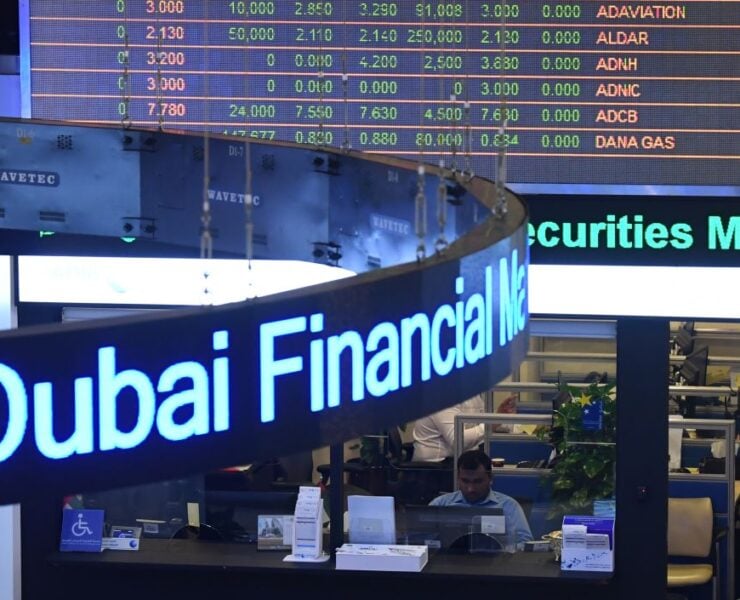
Supermarket chain Spinneys’ $375m IPO draws orders worth $19bn
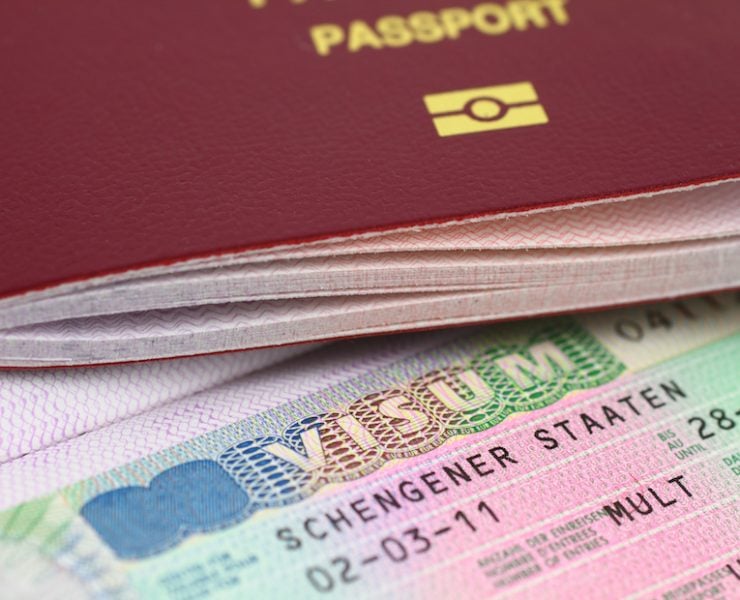
Major Schengen visa update for Bahrain, Oman, Saudi Arabia and India
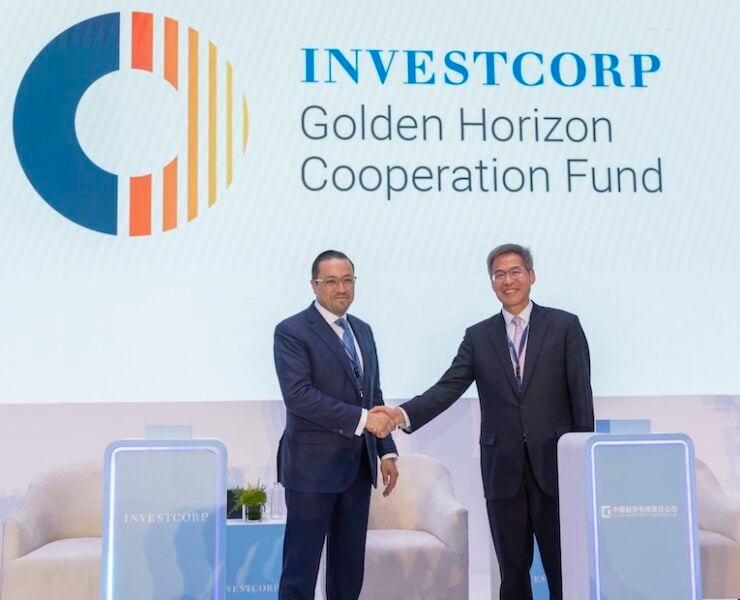
Investcorp announces $1bn GCC fund along with China’s CIC
Every 51st resident in dubai is a millionaire, reveals world’s wealthiest cities report, atm 2024: uae reveals details of gcc’s schengen-styled ‘grand tours’ visa, gulf business may 2024 roundup: mastercard, supercar blondie and more, latest issue.
- Saudi Arabia
- Real Estate
- Special Report
- Art & Culture
Advertise With Us
Privacy policy.
© 2021 MOTIVATE MEDIA GROUP. ALL RIGHTS RESERVED.
- The ten BRICS+ nations account for half the world’s population and two-fifth of trade—and include major energy producers and importers. Twelve more nations have applied.
- The bloc is starting to build institutions with important implications for energy trade, international finance, supply chains, and technological research.
- Global companies will need to factor geopolitics into their investment strategies and strengthen their capacity to capture the opportunities and mitigate the risks of BRICS expansion.
Subscribe to receive BCG insights on the most pressing issues facing international business.

International Trade
/ article, an evolving brics and the shifting world order.
By Daniel Azevedo , Saurabh Bakliwal , Cinthia Chen , Marc Gilbert , Iacob Koch-Weser , Nikolaus Lang , and Michael McAdoo
Key Takeaways
As attention focuses on wars in Eastern Europe and the Middle East and mounting tensions between the world’s great powers, a structural shift in the global order has been quietly underway. Large developing nations are exerting greater influence in world economic affairs and are beginning to build alternatives to Western-led institutions.
At this movement’s core is a formal intergovernmental grouping known as the BRICS+. The grouping includes five longstanding members—Brazil, Russia, India, China, South Africa—as well as five that joined in January 2024 or have been invited: Egypt, Ethiopia, Iran, Saudi Arabia, and the UAE. Together, these ten nations account for around 40% of both crude oil production and exports. They also account for one-quarter of global GDP, two-fifths of global trade in goods, and nearly half of the world’s population. Adding another dozen nations that have applied for membership, including dynamic emerging markets such as Thailand, Vietnam, and Bangladesh, would raise the group’s share to one-third of global GDP.
A larger BRICS challenges the dominance of existing global institutions, such as the World Bank and the International Monetary Fund, that are strongly influenced by the West. It also further weakens the relevance of the G-20, a grouping founded in 1999 to seek economic policy alignment among the largest industrialized and developing economies. Indeed, the G20 is fraying at both ends: its seven most economically advanced members are strengthening their ties through the G7, while its six large developing economies are asserting their own voices within BRICS+. (Exhibit 1.)

BRICS+ creates a forum that, at minimum, gives emerging markets the opportunity to align on global topics and new opportunities to promote mutual economic development and growth. And it’s evolving steadily. As it begins building political and financial institutions and a payment mechanism for executing transactions, there are important potential implications for the future of energy trade, international finance, global supply chains, monetary policy, and technological research. As a result, global companies will need to factor these new geopolitical and economic realities into their investment strategies. They should also strengthen their capacity to capture the opportunities and to mitigate risk that they engender.
How BRICS+ Has Evolved
Leaders of the original BRICS nations held their first summit in 2009 to discuss reforming international financial institutions, which they believed did not adequately address the interests of the Global South. Aside from the United Nations and G20, which included all five BRICS, there was no major forum where emerging markets could discuss their own economic and geopolitical agendas. Development assistance and funding for infrastructure through financial institutions established largely by Western powers after World War II often came with challenging strings attached.
There has been skepticism from the beginning over whether BRICs would evolve into a functioning bloc. But over the years, these nations have been drawing nearer to each other economically. Trade in goods among BRICS economies has considerably outpaced trade between the BRICS and G7 nations, leading to greater intra-BRICS trade intensity. (Exhibit 2). Decades of rapid growth have also given many of these economies far more weight in the global economy, both as producers and consumers. (Exhibit 3.) Because many of these nations are engaged with both advanced economies and China, which is perceived as an economic and trade superpower, they can create another coalition less dependent on the West.

Recent crises have added momentum to BRICS expansion. Several big developing nations that are aligned with neither NATO nor Russia resisted pressure to adhere to Western-imposed sanctions on Moscow in response to the invasion of Ukraine. Others have complained that G7 nations’ initiatives to combat climate change and the COVID-19 pandemic did not take their needs into account. BRICS+ institutions have been slowly evolving through regular meetings, joint initiatives, and formal bodies.
Yet grounds for skepticism over BRICS+’s capacity to become an effective institution remain. This grouping includes countries that are very diverse in terms of political systems, institutional frameworks, economic models, and cultural backgrounds. It even includes geopolitical rivals; for example, relations between Saudi Arabia and Iran, as well as between China and India, remain strained. A so-called “China shock” of low-cost exports of everything from steel and chemicals to machinery could also raise trade tensions within the group. The expansion, moreover, is heavily tilted toward the Middle East, so further regional balance may be required as the group grows.
Five Ways BRICS+ Can Shift the World Order
BRICS+ could make a significant global impact in the following five areas.
Energy. BRICS+ brings together both some of the world’s biggest energy producers and buyers. With the addition of Iran, Saudi Arabia, and the UAE, BRICS+ member states account for around 32% of world output of natural gas and 43% of crude oil. If Kazakhstan, Kuwait, and Bahrain are admitted, those shares will rise further. BRICS+ nations also account for 38% of global petroleum imports, led by China and India. If all new applicants are admitted, that would rise to 55%. (Exhibit 4.) During times of volatility in energy markets, having many of the biggest energy buyers and sellers within the same group could give rise to a parallel energy trading system. That would allow for transactions among BRICS+ economies outside the Western-led financial system and potential future sanction programs, and it would perhaps give them the ability to influence oil prices.

Trade networks. Trade has been a major driver of the economic development of BRICS+. The share of global trade in goods transacted among the group’s current members more than doubled, to 40%, from 2002 through 2022. This trend becomes clearer when looking at the increasing dependence of specific BRICS+ economies on trade with fellow BRICS+ members. China’s growing role as a supplier of industrial and consumer goods, as well as an importer of commodities, has been a key force for integration. China has become a major market for Brazilian soybeans and iron ore, for example, and a major exporter of advanced goods such as electric vehicles, solar panels, and heavy machinery. Western sanctions relating to the war in Ukraine, moreover, have led to the diversion of Russian exports to BRICS+ markets, notably China and India.
Although a handful of BRICS+ members have free trade agreements (FTAs) with each other through blocs such as the Gulf Cooperation Council and Pan-Arab Free Trade Area, there is currently no FTA covering the entire ten-nation group. India withdrew mid-negotiation from Asia’s Regional Comprehensive Economic Partnership, which includes China. BRICS+ could, however, serve as a forum for widening intra-BRICS+ market access in various ways. It already convenes a Digital Economy Working Group, for example, and has established a framework for promoting cooperation in professional and business services trade.
Infrastructure and development financing. The greatest progress so far in BRICS+ institution building has been in project and development finance. The New Development Bank (NDB), capitalized at $100 billion, largely complements China’s Belt & Road initiative. Egypt, India, Russia, Saudi Arabia, and UAE are also shareholders in the China-led Asian Infrastructure & Investment Bank (AIIB) and have received loans from it. By 2023, the NBD and AIIB combined had committed more than $71 billion in credit across a range of sectors, including infrastructure, public health, and clean energy. (Exhibit 5.) Such projects generate significant revenue for BRICS+ companies. The addition of Saudi Arabia and other cash-rich economies, moreover, could expand and diversify the financial resources of BRICS+.

Monetary policy . BRICS+ countries are keen to develop greater independence from the Western-led international monetary system. Approximately 90% of global foreign exchange transactions are conducted in dollars and flow primarily through US and European banks. Western financial sanctions on Russia underscored the powerful systemic influence the US still holds through Bretton Woods institutions and its central role in the global financial system. Because BRICS+ includes leading commodity exporters and importers, however, the group can become a conduit for foreign exchange transactions in currencies other than US dollars. The NDB, for instance, has issued about one-fifth of its loans in Chinese yuan. Russia, China, and other BRICS+ members also aim to promote digital currencies. The group has launched the beta version of a payment app—BRICSpay—that enables transactions in several non-dollar currencies. That could help nations ease reliance on the US and make them less vulnerable to sanctions and foreign exchange volatility during financial crises. From a governance perspective, BRICS+ has established the Payment Task Force, the Think Tank Network for Finance, and the Contingent Reserve Arrangement, establishing a pool of reserves that can be used in place of IMF funds to help nations address financial crises.
Technological cooperation. Space is an overlooked dimension of BRICS+ collaboration. There is a BRICS+ Space Cooperation Joint Committee, supported by longstanding partnerships between Russia and China and China and Brazil. BRICS+ has also established a Partnership on New Industrial Revolution and a Center for Industrial Competencies. These initiatives aim to spur cooperation and innovation in leading-edge technologies in areas such as intelligent manufacturing, artificial intelligence, digitization, and clean energy. The efforts could help more emerging markets get in on the ground of new technologies, improve their capacity to create intellectual property, and adopt alternative technical standards.
The Implications for Companies
An expanded BRICS presents risks as well as opportunities for business. Companies should anticipate that BRICS+ will develop more formal institutions and agreements in the years ahead and begin planning for such scenarios. Companies should consider action in five areas.
- Develop a BRICS-for-BRICS go-to-market strategy. BRICS+ markets are likely to experience significant growth over the next decade. While the group lacks formal trade and investment agreements, it already has substantial, growing intra-BRICS trade. BRICS+ markets could become valuable gateways for companies seeking to expand to other emerging markets. The success of China-made EVs in BRICS+ markets is a good example of how companies can customize offerings to reach consumers across the member countries.
- Leverage the infrastructure boom. BRICS+ is likely to see significant infrastructure investment, which will improve the business environment and connectivity. Transportation, digital communications, energy, and other projects will generate demand for global companies and provide opportunities for investors. The NDB, for example, is funding 15 transportation infrastructure projects across the Indian subcontinent.
- Adapt “China + 1.” Many companies are pursuing supply chain strategies that seek to strike a difficult balance. They want to keep leveraging China’s many competitive advantages in manufacturing. But they also need to mitigate risks, react to shifts in relative costs, and gain access to government incentives for reshoring or near shoring. In a more multipolar world, companies could consider building supply chains that can leverage the BRICS+ economies. That could make them more resilient to geopolitical and trade shocks.
- Refine risk and compliance. Economic sanctions, such as those stemming from the war in Ukraine, and US-China technological competition are heightening legal, operational, and reputational risks for companies. A recent BCG survey of 250 risk and compliance officers found that geopolitical risk is now a top-five concern, up 15 spots from a prior survey. Most sanctions have emanated from Western countries. In the future, BRICS countries could coordinate a mutual “non-sanctioning” posture while also seeking to avoid the Western-led financial system. Multinational companies should account for this scenario when managing their import and export global supply chains, exchange rates, third-party screening, and risk and compliance needs. While companies will need to comply with Western sanctions, they can do so in ways that don’t hamper potential BRICS-for-BRICs value chains.
- Build geopolitical muscle. During the period of relative peace that followed the end of the Cold War, business leaders had limited need to assert themselves in global political and security issues. These days, geopolitics is increasingly uncertain and volatile. Executives need to prepare for a wide range of scenarios that could impact their operations, supply chains, consumers, and brands. They need to factor geopolitics into their capital-allocation decisions and strategic planning. Leaders should also build geopolitical sensing capabilities across their business units, functions, and regional managements to balance business efficiency with risk mitigation.
Recent years of new geopolitical tensions, economic ambition and instability, trade wars, and a pandemic have clearly brought lasting, structural change and challenges to the business landscape we once knew. The growth of the BRICS+ shows that, after decades of strong economic development, emerging markets are now ready for a larger role in the world order, one that better reflects their interests. Companies that adapt to this movement will be more likely to thrive in an evolving era of multipolar competition.

Managing Director & Partner

Managing Director & Senior Partner

Associate Director, Global Trade & Investment

Managing Director & Senior Partner; Global Vice Chair, Global Advantage Practice

Partner & Director, Global Trade & Investment
ABOUT BOSTON CONSULTING GROUP
Boston Consulting Group partners with leaders in business and society to tackle their most important challenges and capture their greatest opportunities. BCG was the pioneer in business strategy when it was founded in 1963. Today, we work closely with clients to embrace a transformational approach aimed at benefiting all stakeholders—empowering organizations to grow, build sustainable competitive advantage, and drive positive societal impact.
Our diverse, global teams bring deep industry and functional expertise and a range of perspectives that question the status quo and spark change. BCG delivers solutions through leading-edge management consulting, technology and design, and corporate and digital ventures. We work in a uniquely collaborative model across the firm and throughout all levels of the client organization, fueled by the goal of helping our clients thrive and enabling them to make the world a better place.
© Boston Consulting Group 2024. All rights reserved.
For information or permission to reprint, please contact BCG at [email protected] . To find the latest BCG content and register to receive e-alerts on this topic or others, please visit bcg.com . Follow Boston Consulting Group on Facebook and X (formerly Twitter) .


COMMENTS
Watch the 23rd Global Summit On-Demand. The 23rd World Travel & Tourism Council Global Summit took place in Kigali, Rwanda, 1st - 3rd November 2023. WTTC's annual Global Summit is the most influential Travel & Tourism event on the calendar, and this year, industry leaders once again gathered with key government representatives to continue ...
Rwanda is proud to co-host the 23rd World Travel and Tourism Council (WTTC) Global Summit from 1-3 November 2023. The annual summit brings together industry leaders and government representatives to discuss and align efforts for the recovery of the travel and tourism sector. The theme of this year's Global Summit, Building Bridges to a ...
6 October 2023. In a milestone event that promises to reshape the contours of the global Travel & Tourism sector, the World Travel & Tourism Council (WTTC) today unveils the bold theme and agenda ...
The 23rd World Travel & Tourism Council Global Summit will take place in Kigali, Rwanda, 1st - 3rd November 2023. WTTC's annual Global Summit is the most influential Travel & Tourism event on the ...
The 23rd World Travel & Tourism Council Global Summit will take place in Kigali, Rwanda, 1st - 3rd November 2023. The 23rd World Travel & Tourism Council Global Summit will take place in Kigali, Rwanda, 1st - 3rd November 2023.
The 23rd World Travel & Tourism Council Global Summit will take place in Kigali, Rwanda, 1st - 3rd November 2023. WTTC's annual Global Summit is the most influential Travel & Tourism event on the calendar, and this year, industry leaders will once again gather with key government representatives to continue aligning efforts to support the sector's recovery and move beyond to a safer ...
The World Travel and Tourism Council (WTTC) 23rd Global Summit officially opened in Kigali, Rwanda, on Thursday, with President Paul Kagame of Rwanda, President Samia Suluhu Hassan of Tanzania, Vice-President Prosper Bazombanza of Burundi, calling for liberalized travel across the region and the continent.
The 23rd World Travel & Tourism Council Global Summit will take place in Kigali, Rwanda, 1st - 3rd November 2023. WTTC's annual Global Summit is the most influential Travel & Tourism event on the calendar, and this year, industry leaders will once again gather with key government representatives to continue aligning efforts to support the sector's recovery and move beyond to a safer, more ...
The 23rd World Travel & Tourism Council Global Summit will take place in Kigali, Rwanda, 1st - 3rd November 2023 . WTTC's annual Global Summit is the most influential Travel & Tourism event on ...
The World Travel & Tourism Council Global Summit 2023 was a 3-day event held in Kigali, Rwanda from 1st to 3rd November. The summit attracted many delegates and experts in travel and tourism, and people from over 45 countries to Rwanda to craft a new vision on how the sector should become sustainable.
The 23rd World Travel and Tourism Council Global Summit that took place in Kigali Rwanda from 1-3 November 2023.#wttc2023 #MeetInRemarkableRwanda #GSRwanda
The 23rd World Travel & Tourism Council Global Summit will take place in Kigali, Rwanda, 1st - 3rd November 2023. WTTC's annual Global Summit is the most influential Travel & Tourism event on the calendar, and this year, industry leaders will once again gather with key government representatives to continue aligning efforts to support the sector's recovery and move beyond to a safer ...
The announcement was made at the close of this year's summit which took place in Riyadh, Saudi Arabia, from November 28-30, 2022, at which time Arnold Donald, Chair of the World Travel & Tourism Council commented on the choice. "It's only fitting that our host for the WTTC 2023 Global Summit will be a country that has made great advancements in ...
The Tenerife Global Summit 2024 is considered one of the largest tourism knowledge events at an international level - and is only the third of its kind to be held, after those of 1994 and 2004 ...
London, UK: In a milestone event that promises to reshape the contours of the global Travel & Tourism sector, the World Travel & Tourism Council today unveils the bold theme and agenda for WTTC's 23rd Global Summit taking place in Kigali, Rwanda: "Building Bridges to a Sustainable Future". This year's eagerly awaited Global Summit, set to unfold from the 1 - 3 November 2023, takes place in ...
According to figures shared by the United Nations World Travel Organisation (UNWTO), international tourism expenditure from the GCC climbed from $40bn in 2010 to $60bn in 2017, with per capita ...
About the portal. A technological tool for effective communication between the leading players in the Moscow tourism market and representatives of the foreign/regional tourism industry through online events. OBJECTIVES: • Building long-term cooperation with foreign/regional representatives. • Raising awareness among foreign/regional ...
Event tourism became one of the key development areas of the Russian capital's travel sector in 2023. Festivals, forums and thematic events, along with tourist attractions, draw Moscow visitors. According to Mosturism, the average hotel occupancy rate reached its peak on the days of major events in 2023. Its growth was up to 14 per cent.
As more big emerging markets join the BRICS+ nations, the grouping could give the Global South a greater voice in world affairs and challenge the domination of existing institutions. The ten BRICS+ nations account for half the world's population and two-fifth of trade—and include major energy producers and importers.
On September 14-15, the Moscow City Tourism Committee presented a new project for educational tourism project named "City of Discoveries" together with its key platforms. More than 40 executives of relevant ministries and agencies from Russian regions. During the 23rd session of the UNWTO General Assembly, at a business session ...